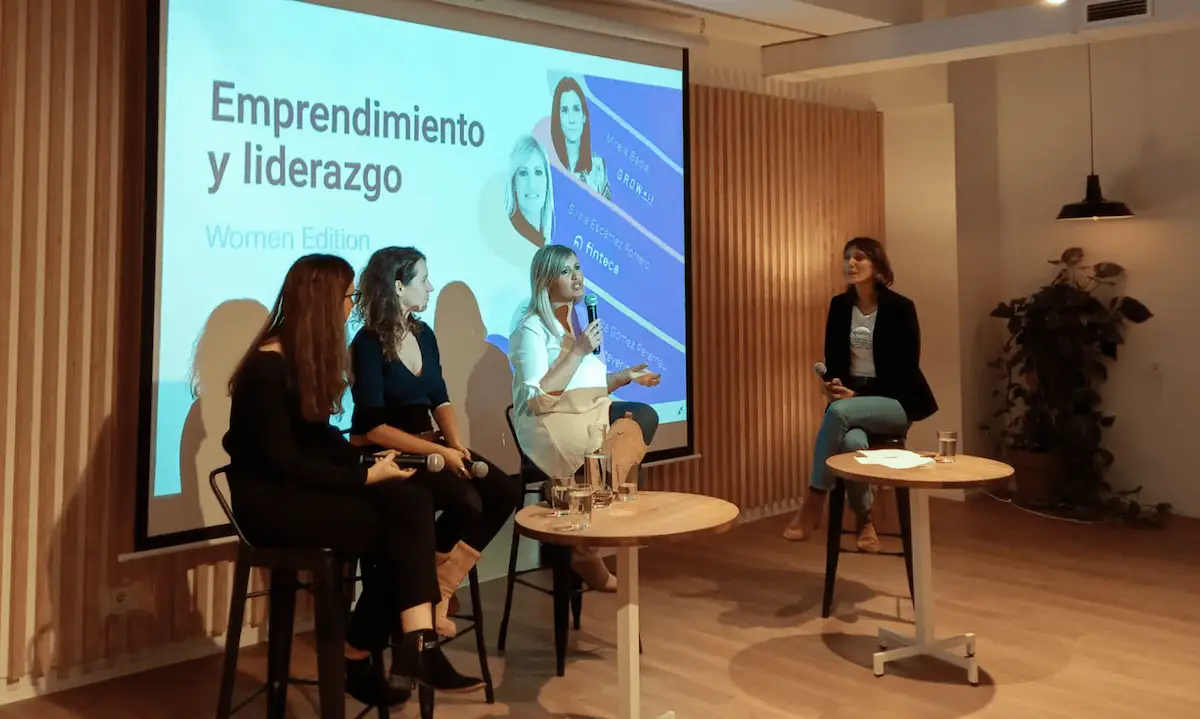How to break the gender gap in entrepreneurship

Did you know that only 20% of people who decide to start their own business are women? The financial solution Qonto has recently brought together a group of leading female entrepreneurs to reflect on why this gender gap exists in the world of entrepreneurship and how organizations and professionals can contribute to reducing it.
In the talk, which took place on Wednesday, November 17th at Aticco Bogatell, the speakers Silvia Escámez, Co-founder and CEO of Finteca; Mireia Badia, CEO and Co-Founder of Grow.ly; Laura Gómez, CEO and Founder of Catevering; and Paloma Blázquez, Marketing and Communication Director at Qonto España, participated as moderator.
Under the title, Entrepreneurship and leadership – Women Edition, the entrepreneurs shared their vision and experience, in addition to inspiring and discussing the keys to contributing to female empowerment in the business world.
More investment
The figures speak for themselves. While, as Silvia Escámez explains, 60% of the startup workforce is made up of women; only 20% of the founders and leaders are women. There is a big difference and something that prevents or discourages women from starting businesses.
On the one hand, as the speakers mentioned, investment from venture capital, business angels and venture capital is lower in projects led by women than in those led by men. This, following what Escámez argued, is surprising since, according to her, "the return is higher in the case of women."
In this sense, the CEO of Finteca pointed out that perhaps the problem comes from the fact that women tend to maintain a lower profile and be more cautious, and this can lead us to "not finish selling our project well." It is precisely the characteristic of being more cautious that gives greater security or viability to women's projects since they seek to secure their idea a lot before launching into entrepreneurship.
Mireia Badia, CEO of Grow.ly, explained that she herself as an employer has realized that this does not only happen in entrepreneurship but also at the team level: “The male entrepreneur knows how to sell himself better even with a worse product. A large part of the work has to be done by oneself, many women tend to devalue themselves.”
Networks of women entrepreneurs
In the session, the speakers pointed out flaws or drawbacks while proposing ideas and solutions. Thus, to face the moment of presenting to investors, the three entrepreneurs agreed to emphasize the importance of self-confidence and finding support.
As Laura Gómez explained: “When I started my entrepreneurial journey, I felt very alone facing investors and partners. Women's communities help a lot, not only to obtain resources but also to feel supported.” To foster this collective support, there are different initiatives for networks of women entrepreneurs. In the Fintech and Insurtech sector, for example, women entrepreneurs can find support in the Fintech Women Network created by the Spanish Fintech and InsurTech Association.
Financing programs for women entrepreneurs
In addition to support networks, there are also specific financing or acceleration programs for female entrepreneurs. An example is the Wayra Scale Up Women program, which we have promoted this year from Aticco Ecosystem.
Although specific programs for women, as with quotas, are not without controversy, Badia reflected on the need for them to exist: “Today, acceleration or financing programs specifically for women are necessary because if we do not mobilize change, it does not happen, it must be encouraged.”
For the CEO of Catevering, one of the areas where there is still much ground to cover is investment. Her personal experience is proof of this: "I have stood in front of investment funds and they only looked at my partner when I was the one answering the questions."
With everything, and as Escámez said, "female talent is impressive". So, why don't we pave the way for that talent?
The values that the speakers wanted to transmit to the audience and to those women who want to embark on entrepreneurship were perseverance, balance and keeping an open mind to the changes to come. perseverance, balance and keeping an open mind to the changes to come.
Laura, Silvia, and Mireia are contributing their share to something very important for achieving equality: ensuring there are more and more role models for women in business. Qonto ES, for its part, promotes the potential of female leadership to the rest of the community with this type of event.


